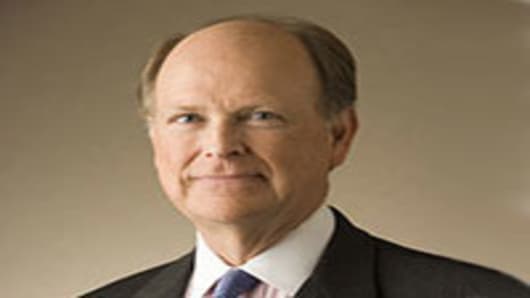The federal funds rate is low enough to boost economic growth as the lagged impact of previous interest rate cuts starts to kick in, Philadelphia Federal Reserve President Charles Plosser said Friday.
Plosser, speaking at Drexel University in Philadelphia, warned against seeing rate cuts as "the solution to most, if not all, economic ills."
The real fed funds rate, or the actual rate minus the expected rate of inflation, is negative for the first time since 2003-2004, Plosser said.
That "accommodative" level "should support the market forces that will bring economic growth back toward its long-term trend," he said.
Despite his cautiously upbeat outlook, Plosser said that forecasting economic growth is harder given current turbulence, and that the credit crunch "has the potential to restrain economic growth going forward."
Although some argue for lower rates as "insurance" in case financial turmoil impedes the transmission of rate cuts to the economy, "determining the appropriate level of such extra accommodation is difficult to quantify," he said.
Plosser voted against the Federal Open Market Committee's decision in March to lower the federal funds rate by 75 basis points.
Seeing rate cuts as a cure-all is "a dangerous misconception," he said, adding that that assessment of what monetary policy can achieve "seems to have risen considerably over the years."
"The role of monetary policy is to ensure the stability of the purchasing power of the nation's currency, so that markets are not distorted by inflation," Plosser said.
"To ensure the credibility of monetary policy, we should never ask monetary policy to do more than it can do," he said.
Financial markets, sensing opposition from within the FOMC to further deep rate cuts, now look for the Fed to lower rates by 25 basis points this month, to 2 percent. Earlier this month bets narrowly favored a 50 basis-point cut.
Plosser said the Fed has been acting on several fronts to address the upheaval in financial markets but that ultimately "the markets will have to solve these problems, as indeed they will."
The crisis that has roiled global credit markets since August also suggests a rethink of how the Fed should act to address systemic risk, he said.
"In times of financial crisis, a central bank is supposed to lend freely at a penalty rate against good collateral ... We need to better understand how to apply this lender of last resort maxim in the context of today's financial environment," Plosser said.


